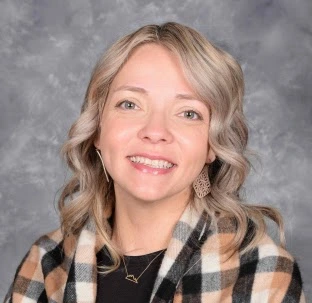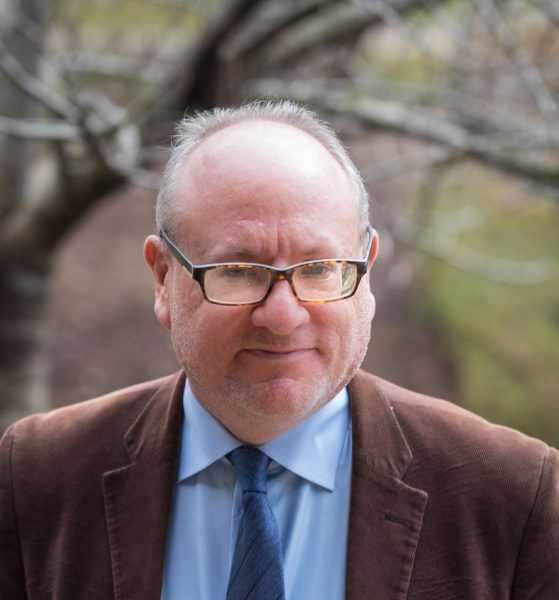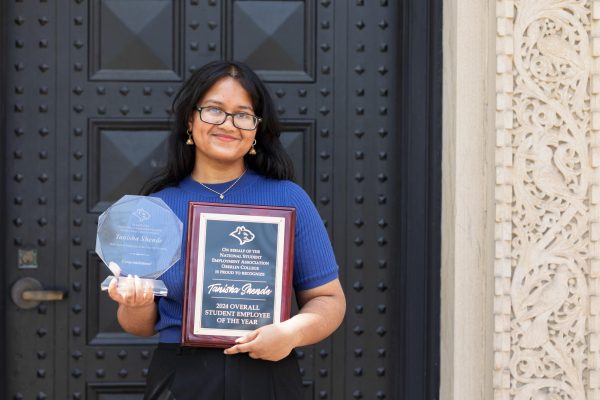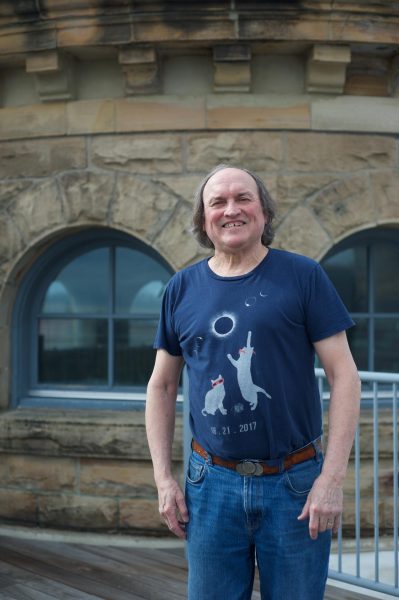OTC: Felicia Webber, Oberlin Elementary School Principal

Felicia Webber
On April 11, Oberlin City School District announced Felicia Webber as the new Oberlin Elementary School principal. Webber, formerly the assistant principal of OES, will be replacing current principal Meisha Baker as Baker advances to the role of OCS curriculum director. Before she was assistant principal, Webber worked at OES in a variety of roles, including substitute teacher, third-grade teacher, and fourth grade teacher. Webber spoke to the Review about how her history in the classroom, both professional and personal, informs her actions as an administrator.
This interview has been edited for length and clarity.
Your fourth-grade class loved having you as their teacher. How did you undertake the decision to leave the classroom?
Once a student is my student, they’re always my student. One of the things I’ve really enjoyed here in Oberlin is seeing students in our building whose parents I once had as students. That’s just special. And what really warms your heart is when the people who are parents now ask you things like, “Do you remember when?” and they share things from your class years ago. I don’t know if there’s many other professions that get a chance to do that, but I know it’s something that makes teaching and being an administrator especially unique. There’s always something in every profession that everyone’s envious of, and I hope our envious piece is the relationships with kids and families. I didn’t feel like moving out of the classroom was a tough decision or a hard decision. I knew there would be elements of teaching that I would miss, but I was so happy to be able to take the things that I loved about it and expand it to a wider population — being able to talk with more kids, inspire them to do more, having someone be a champion for them.
What direction do you hope OES will move in under your leadership as principal?
A big piece is continuing implementation of the district strategic plan. We had three really big focus areas this year, the first of which was expanding our knowledge of cultural competency, humility and methods of inclusion. We worked closely with Dr. James Knight this year — he wrote a book called Heart: A Journey Toward Cultural Humility. This book is a component of the professional development training that we’ve done with our entire staff all year long. Another part of the strategic plan is working on Tier 1 instruction, which is providing staff with professional development resources that empower them to deliver strong instruction to all of our students. The third part is working on creating systems that help our families in the community and becoming collaborative with a more holistic approach to student needs and family needs beyond academics. What are their social emotional needs? What are barriers they might be facing, and how can we assist as a school district to help them? And if we don’t have the right resource within our district, let’s see what we can do within the community to hook them up with someone who can. Speaking of meeting students’ needs, how will OES continue to support students who struggled during the remote learning period and are currently working hard to rebound and meet standards for their grade level? There’s not a one-size-fits-all strategy. It just takes consistent progress monitoring and saying, “This is the information we’ve gathered about this student, and what their needs are — how can we provide and meet those needs here within the building?” One thing in Oberlin that I’ve enjoyed is when we have family nights for math and literacy — seeing the investment families have in their kids. I’ve been a lifelong believer that all parents want their children to succeed, and it’s really the partnership between home and school that can make that relationship stronger. If they’re hearing it at home and they’re hearing it at school, then they’re like, “Okay, I can do this.”
What other programs and community building events are being hosted by Oberlin City Schools in the coming months? What resources should parents be aware of?
Right now, we’re participating in the Ecolympics, which has been a big deal — the kids are really, really enjoying it. We actually have members of Oberlin College coming to teach our students about composting in the cafeteria. I even had a student today say, ‘Mrs. Webber, do you know what? At home, I am making my family turn off the lights.’” So it’s really cool to see the things that we’re doing here at school transfer over at home. We also have some upcoming English language classes that the district has been offering to family members of students. Our district family support coordinator, Jay Nimene, is helping us with enrichment programming for students over the summer — families can access that information on our website. And, of course, we always like community events. Later in May, we’re gonna have our Family Math and Literacy Nights. We’ll have a night that focuses all on literacy, and it’s inviting families and students to take part in different types of literacy activities and games. Same thing with math, where they might come in and learn some techniques and play some games related to, for example, fact fluency. And then for both nights we provide the materials on the subjects for the families to take home, and do it with their kids.
You’ve spoken about the importance of forming relationships with students and their families as a classroom teacher. As principal, what steps will you continue to take to build meaningful connections with students?
I try to be purposeful in my interactions with the kids no matter what the circumstances are. To let them know I understand their situation, their perspective, their thoughts. And it’s not just when students come down to the office. I make a point to try to see them in the hallways, visit classrooms, and when I see them out someplace, say hello to them. So they’re not just seeing me as someone who’s in the office. They’re seeing me as a person in their school, congratulating them on accomplishments they’ve made. My former principal — now my advisor, Dr. Paul Johnson — did something where he had Student of the Month. As a kid, you thought it was a huge deal. They would set up one cafeteria table away from everybody else, and they put down little paper placemats and a little carnation on the table, and you got to eat lunch with him. When I was a kid, I thought this was so wonderful, so this year I tried to do that with students, where a couple months out of the year we would have what we called “fancy lunch.” That’s one of the other reasons that I’ve really liked the switching of roles. I had really fantastic administrators as a teacher, but also as a student myself, and the impact they had on me, helping me see all the things I can achieve — I wanted to do that for my kids.









